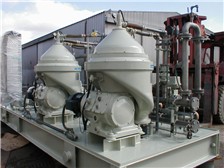Author: Calvin
With the current oil boom likely to continue into the next decade, many oil companies are desperately hiring workers for offshore employment in exploration and drilling work. In North America, Houston, Tulsa and Alberta have featured in the news in the past year. However, wherever you can find oil and gas, you will find the major players present.
The generous salaries and benefits offered by oil companies are well known. So is the hard physical work. But do you know about the offshore work schedule? Most offshore work is structured so that you work 1 week on/1 week off, or 2 weeks on/2 weeks off, etc. Quite common is 4 weeks on/4 weeks off. You may even find 6 weeks on/6 weeks off.
Not all offshore employment is on an oil rig. Quite a lot of it also happens on ships. Of course, some of the deep sea oil rigs are actually mounted on gigantic ships. You'll find ocean-going tugs, towboats and pipeline barges deeply involved in the process of oil production.
Many of you grew up with easy communications and access to mobile phones and the internet. You have rarely been isolated from your families and friends in the past. Once you work offshore, this will no longer be the case. You will no longer have easy and unlimited contact with your friends and family for up to 6 weeks at a time. This kind of thing is often overlooked by those seeking offshore employment, but has caused a lot of strain in family relationships.
When you successfully gain offshore employment, you also need to think of your personal logistics - your mortgage payments, car payments, phone bills, etc. You'll need to set up automatic payment arrangements with your bank, otherwise you could wind up in quite a lot of inconvenience. Don't forget to settle things like your voluntary military service.
Offshore employment can be very rewarding. If you are willing to learn and work conscientiously, you will find yourself getting fast promotions and advancements. Don't forget that you'll probably only work 6 months out of the year. Unlike office workers, you'll have plenty of time off to pursue your own interests, whether its a hobby or sport or something else. Those of you with an entrepreneurial bent will find a lot of free time to start up and build your own business.
While no one likes to think about taxes, Section 911 of the U.S. tax law permits U.S. taxpayers to earn up to $80,000 per year of tax free income. The intention was to encourage US citizens to work offshore in less hospitable surroundings (namely 3rd-World countries). If your offshore job is overseas, or you think it can count as overseas, remember to consult your accountant and lawyer before you leave home. Who knows, with a little luck, you could take home $80,000 and not have to pay tax. Also don't forget to set up a way to submit your income tax return in case you have to work in March or April.
These are some of the lesser known facts about offshore employment. Good salary, good benefits, possibly tax-free. Depending on the company and work location, possibly no contact with family, no phone, and/or no internet. Lots of other things to set up like automatic mortgage payments and income tax submissions.
This article is free for republishing
Source: www.articlealley.com












